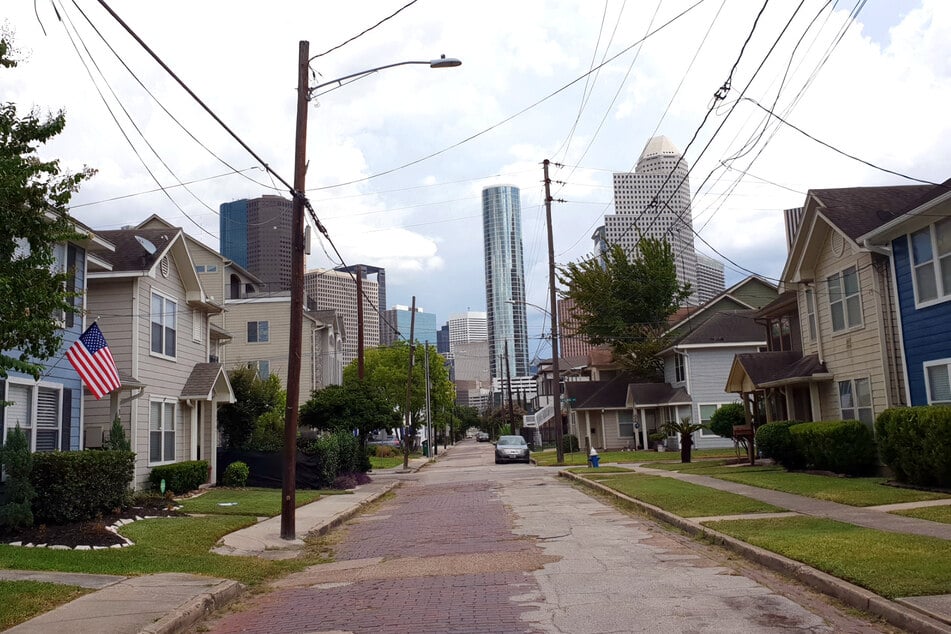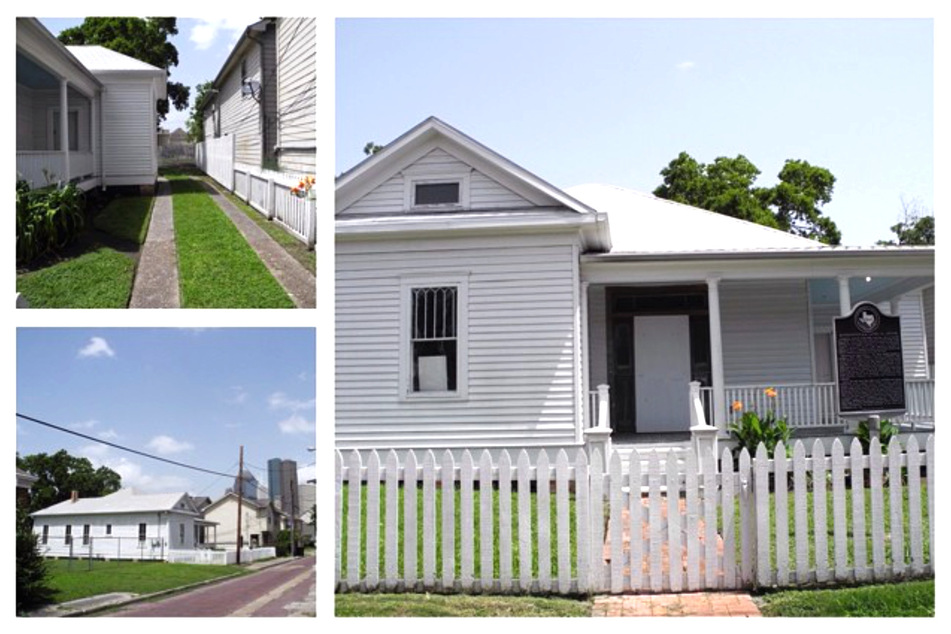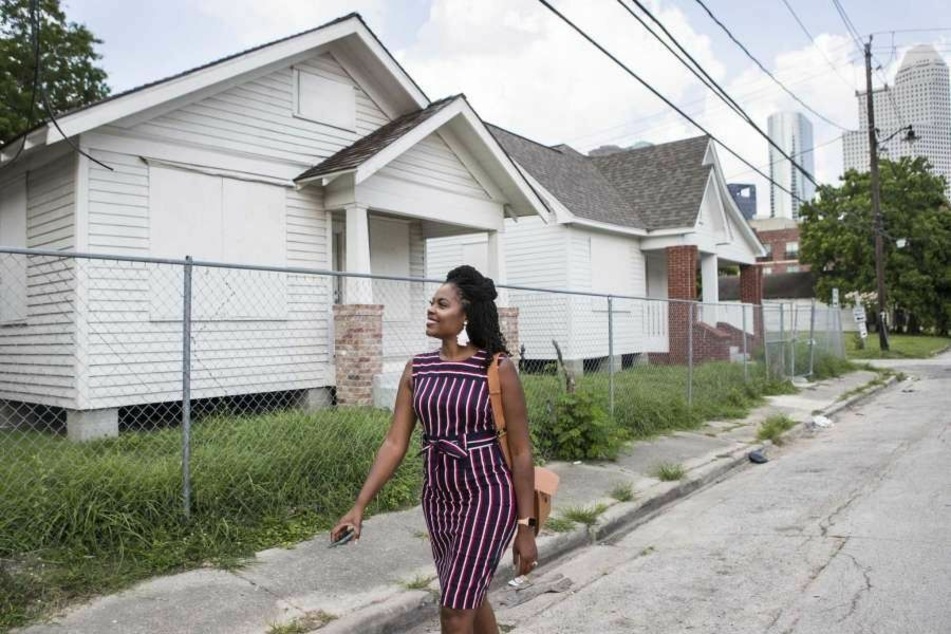City of Houston votes to designate historically Black Freedmen's Town as first local Heritage District
Houston, Texas – The Houston City Council voted unanimously on Wednesday to make Freedmen's Town, established after Emancipation, the city's first Heritage District.

Cruising down Interstate 45 in Houston, you pass the soaring skyscrapers of Downtown on one side and the Fourth Ward on the other.
Directly inside the Fourth Ward, you encounter Freedmen's Town Historic District, what remains of a settlement originally founded by formerly enslaved people who migrated to Houston in the post-Civil War period.
The shotgun homes, brick roads, and community churches characteristic of the original settlement are interspersed with high-end modern townhouses. Dominating the overhead view is the shiny skyline of the city's Central Business District.
The Freedmen's Town neighborhood is of enormous significance for Black Houstonians. After the Civil War, independent freedom colonies were formed all over the country as Black people sought to distance themselves from white American influence and exploitation.
Texas alone was home to at least 540 such settlements, but several scholars note that Houston's Freedmen's Town is unique in that descendants of the first settlers continue to reside at the original location.
Community activists fight to preserve their neighborhood

The story of Freedmen's Town is one of resilience and self-sufficiency.
Free Black people crafted the bricks that still line the streets of the neighborhood, then at the outskirts of the city. They transformed the piece of swampland into a thriving center of Black professional and community life, boasting its own schools, hospitals, churches, businesses, and community centers.
But walking through the neighborhood today, the dilapidated state of many of the original structures jars with the history of prosperity and professionalization that marked Freedmen's Town's early years.
Targeted efforts to undermine the Black community's success, including building a highway and even a red light district in the middle of the neighborhood, combined with decades of private development and gentrification, turned Freedmen's Town from the center of Black professional life to one of the most impoverished communities in the city.
None of that has stopped community activists from fighting to maintain their neighborhood, successfully campaigning to get Freedmen's Town listed on the National Register of Historic Places (NRHP) in 1984. But it turns out, receiving the NRHP designation didn't actually come with enforceable protections against private development.
Indeed, Carol McDavid, executive director of the Community Archaeology Research Institute, found that only around 10% of the buildings listed in the NRHP application still stand today.
Preservationists celebrate the victory

Wednesday's move to designate Freedmen's Town as a Heritage District could be a game changer for local preservationists.
Houston Freedmen's Town Conservancy Executive Director Zion Escobar told the Houston Chronicle, "This is important because with this designation now, we have the opportunity to infuse desperately needed energy and capital into the community to help preserve, educate and engage Houston and the world in telling the story of freedom."
With the new designation, non-profit groups will be able to generate and invest funds to repair and conserve the neighborhood's historically significant sites.
Escobar says the Conservancy plans to raise $1 million to restore the streets, as well as add benches and public art. Maintaining the original bricks, some of which are laid in traditional patterns, has long been a priority of local preservation groups.
"It's important for us to hold on to as much of that history as we can and not lose it, because it defines in large part who we are as a city. We've lost a lot but we haven't lost it all," Houston Mayor Sylvester Turner said of the council's decision, which came just days before the city is set to celebrate Juneteenth.
Freedmen's Town is currently the final site in the National Parks Service's planned Emancipation National Historic Trail from Galveston. The neighborhood also has several structures recognized in the UNESCO Slave Route Project.
Cover photo: Kaitlyn Kennedy

